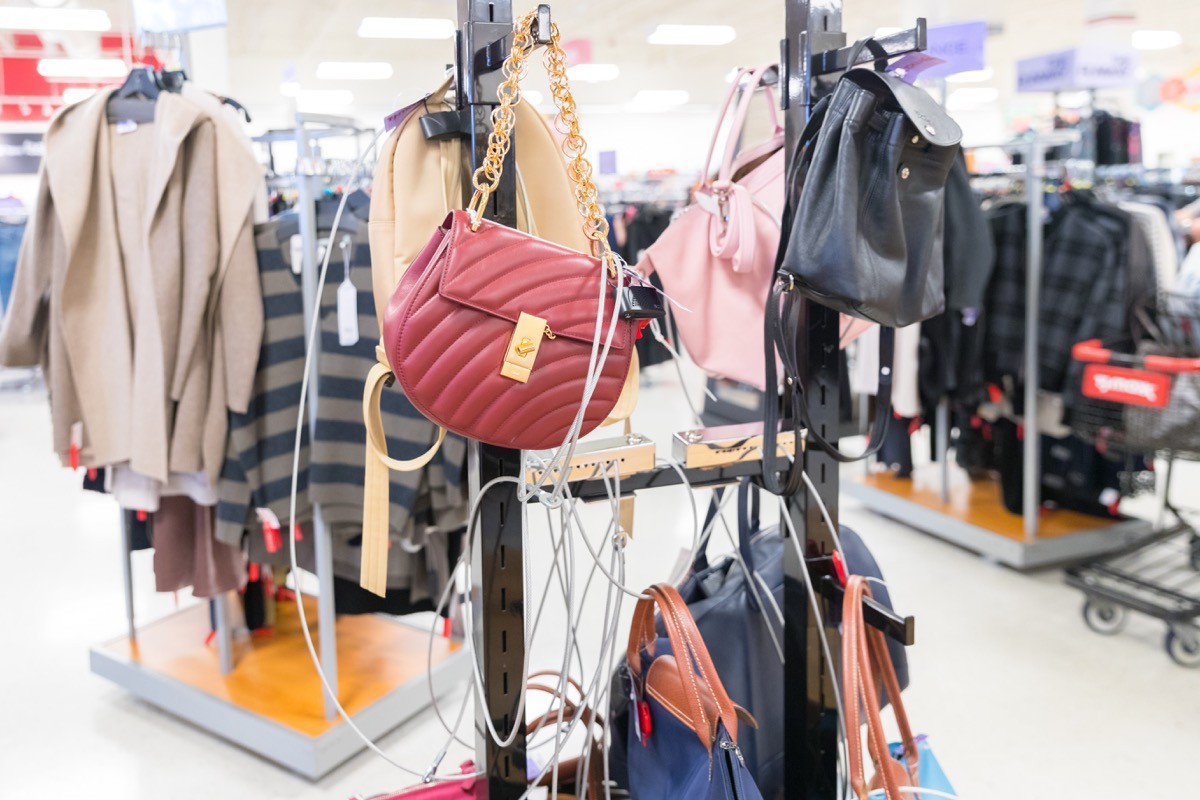T.J. Maxx Is Set to Explode in Popularity This Year—Here’s Why

Retailers are shaking in their boots this year as beloved stores like Macy’s struggle to stay afloat and new tariffs start to take effect, raising the costs of doing business.
T.J. Maxx, however, seems to be a bright exception. Thanks to its tariff-proof strategies combined with its competitive prices and plans for expansion, the brand is emerging as one of the smartest places to shop in 2025. Here’s why more Americans are expected to flock to T.J. Maxx this year—and how you can score the best deals on designer brands in store or online.
RELATED: Shoppers Slam T.J. Maxx & Marshalls: “I Literally Stopped Going for This Reason”
T.J. Maxx Can Keep Prices Low—Unlike Its Competitors
To prepare, American companies have been stockpiling their imports as much as possible, and retailers like Walmart are already admitting that they will likely pass higher costs onto their customers.
But, T.J. Maxx has a completely different business model that protects it from tariffs.
Instead of importing merchandise directly from factories overseas, the retailer buys excess inventory from designer brands after it’s already in the U.S. In fact, T.J. Maxx benefits when other retailers experience supply chain disruptions, canceled orders, or overproduction. It will swoop in and buy those excess items, then resell them in its 1,322 store locations across the country at a steep discount.
This allows the chain to keep prices 20% to 60% lower than traditional department stores—and not pass on any price hikes to customers.
“The view from TJX is that regardless of tariffs they will still be able to maintain way more competitive prices than mainstream retailers,” Neil Saunders, an analyst at GlobalData Retail, told CNN back in November 2024. “In other words, even if prices do generally rise because of tariffs, TJX will still be relatively cheaper.”
T.J. Maxx Has Perfected Designer Deals

Have you shopped at a T.J. Maxx recently? If so, you may have seen coveted brands like Dior, Vince, Theory, Moschino, Farm Rio, Longchamp, New Balance, and more on shelves.
That’s because TJX Companies, the parent company of T.J. Maxx, Marshalls, and HomeGoods, has been hard at work in recent years to transform the perception of its brands from discount stores to high-end designer deal destinations.
To do this, T.J. Maxx has zoned in on carefully curating the products it offers from well-known designers, experts told CNBC. And, these designers are eager to sell their excess inventory to T.J. Maxx over other department stores given their discreet practices.
For instance, many designer labels are unsearchable on T.J. Maxx’s website, which helps protect their high-brow image. Plus, in most cases, shoppers have to go to a physical store to find designer deals, which have a rapid turnover rate, and therefore, aren’t widely advertised.
This helps designers maintain their high-end reputations while getting rid of excess items without being percieved as cheap or low quality.
RELATED: Buying Designer at T.J. Maxx and Marshalls? Here’s What to Know
T.J. Maxx Has Aggressive Expansion Plans
Experts expect T.J. Maxx’s first quarter revenue in 2025 to increase by 5.6% year-over-year to $13.81 billion, according to Stock News.
The retailer has been on a hot streak of positive performance, which led to an announcement in May 2024 that there will be more new store locations popping up worldwide.
Ernie Herrman, CEO of TJX Companies, said at the time that the company aimed to open 1,300 additional stores for all of its brands across the U.S., Canada, Europe, and Australia.
Herrman credited the success of T.J. Maxx, Marshall’s, and Home Goods to younger generations looking for deals.
“We continue to attract new Gen Z and millennial shoppers to our stores, which we believe bodes well for our future growth,” he told investors. “It’s really great when we see multiple generations shopping our stores together.”
With savvy shoppers abandoning department stores and looking for great deals on quality, designer brands instead of paying full price, T.J. Maxx is well-positioned to dominate retail this year.